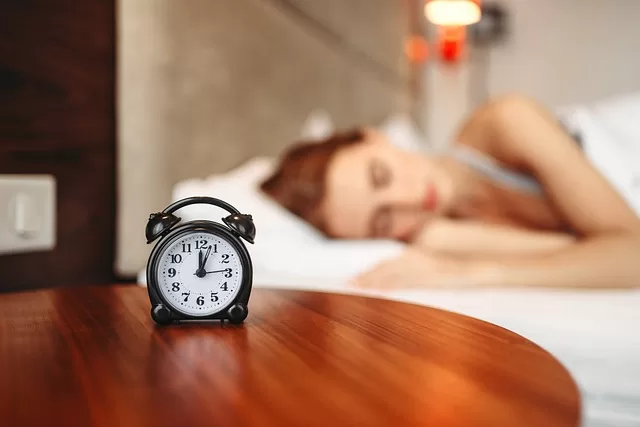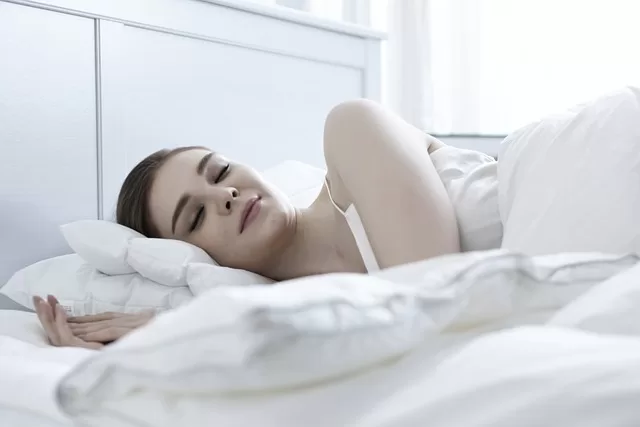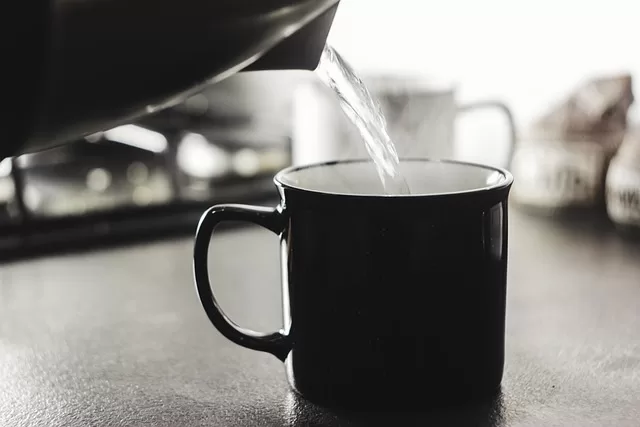10 Tips for Better Sleep
Getting a good night’s sleep can be tough in the modern world, with all of the stresses of the day and the constant stimulation from smartphones and social media.
With busy schedules, we’re often eating dinner late at night and not getting the sleep we need. We’re tired the next day, and this cycle can continue and compound over time – leading to exhaustion!
But, good sleep is also critical for promoting weight loss and maintaining a healthy weight. It can affect your daytime cravings, as well as your insulin sensitivity, among other things.
In this post, we’ve put together a list of 10 straightforward tips for better sleep.
We hope you enjoy the list!
1. Establish a Consistent Sleep Schedule

Establishing a consistent sleep schedule helps improve sleep by regulating your body’s internal clock.
We’ve all been guilty of trying to catch up on sleep over the weekend…we’ll stay up later than normal and then sleep in later than normal.
While we convince ourselves that this is a good thing (hey, more hours of sleep!), it’s actually wrecking havoc on our sleep schedule over the next week.
Your body does best by staying consistent (or as consistent as possible) – changing your sleep schedule too much is kind of like jet lag (traveling across time zones).
2. Create a Comfortable Sleep Environment
Establishing a comfortable sleep environment helps improve sleep by creating conditions that promote relaxation and restfulness.
Here’s a few things to try:
- Use black out curtains to block out any light from the windows
- Use ear plugs and/or a white noise machine to drown out any ambient noise
- No TVs or screens in the bedroom
- Some people can benefit from using a weighted blanket
- Keep your bedroom cool – a temperature between 60-67F has been found to be optimal.
3. Limit Exposure to Screens Close to Bedtime

Limiting screens before bedtime helps improve sleep in several ways:
- Screens emit a lot of blue light, which can suppress the production of the sleep hormone melatonin, making it harder to fall asleep and disrupting the sleep-wake cycle. If you have to look at a screen at night, we recommend to wear blue light blocking
- Scrolling through social media or adrenaline pumping shows is very stimulating, and it can be difficult to fall asleep right after that…not without a wind down period.
- By limiting screens, you can focus on a more relaxing bedtime routine…things like reading a book, taking a hot bath, or just relaxing with you spouse (or furry friend!)
4. Limit Food and Caffeine Close to Bedtime

Limiting food and caffeine before bedtime helps improve sleep by reducing disruptions to your sleep cycle. Eating a large meal or consuming caffeine close to bedtime can:
- Disrupt Digestion: Late-night eating can lead to discomfort and indigestion, making it harder to fall asleep and stay asleep.
- Stimulate Alertness: Caffeine is a stimulant that can increase alertness and interfere with the body’s natural wind-down process before sleep.
By limiting food and caffeine before bedtime, you allow your body to enter a more restful state, making it easier to fall asleep and enjoy uninterrupted sleep throughout the night.
5. Establish a Relaxing Bedtime Routine
Establishing a relaxing bedtime routine helps improve sleep by signaling to your body that it’s time to wind down and prepare for rest.
It creates a consistent and calming transition from wakefulness to sleep, reducing stress and anxiety, and promoting better sleep quality.
Here’s a few ideas for things to do during a bedtime wind-down routine:
- Drinking hot tea
- Reading
- Hot shower/bath
- Meditation
- Relaxing with spouse or pet
- Gentle stretching
6. Stay Active During the Day

Staying active during the day can promote better sleep by reducing stress, improving mood, and helping to regulate your body’s sleep-wake cycle.
It also contributes to better physical health, which can indirectly support better sleep.
So try to get at least 20-30 minute walk or a short workout in…your future, more rested self will thank you.
7. Limit Naps

Limiting naps during the day can promote better sleep by reducing daytime sleepiness and ensuring that you’re more tired when it’s time for your main nighttime sleep.
You can think of sleep like a pressure cooker…you want to build up enough pressure during the day so that you can quickly transition into sleep.
But if you take a nap, it’s kind of like letting some steam out of the pressure cooker…so sleep gets harder.
8. Manage Stress

Managing stress can promote better sleep by reducing anxiety and calming the mind, making it easier to fall asleep and stay asleep throughout the night.
Here’s a few stress management tips:
- Meditation
- Get adequate sleep
- Spend time in nature
- Practice deep breathing
- Connect with loved ones
- Limit screen time
- Laugh
- Take time for hobbies or other activities you enjoy
9. Limit Fluid Intake Before Bed

Limiting fluid intake before bed can promote better sleep by reducing the likelihood of waking up in the middle of the night to use the bathroom.
I know this may be easier said than done…some of us always seem to have to get up in the middle of the night!
10. Get Exposure to Natural Light

Getting exposure to natural light helps promote better sleep by regulating your body’s internal clock (circadian rhythm).
Exposure to daylight during the day signals to your body that it’s daytime, helping you feel alert and awake.
When you wake up, open the blinds or take a quick walk outside.
This natural light exposure during waking hours can improve nighttime sleep by reinforcing a healthy sleep-wake cycle and reducing the risk of sleep disorders.

